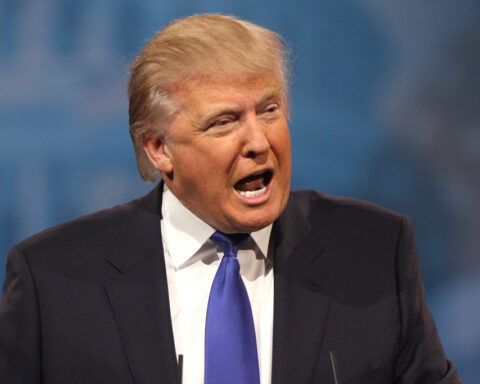A French court stunned the political establishment on Thursday by reportedly sentencing former President Nicolas Sarkozy to five years in prison for allegedly conspiring to seek campaign funds from the late Libyan dictator Moammar Gadhafi.
The ruling handed an unprecedented penalty to a man who once held France’s highest office — despite judges acknowledging there was no proof Sarkozy’s 2007 campaign ever received Libyan money.
Presiding judge Nathalie Gavarino declared Sarkozy guilty of criminal conspiracy, saying he permitted close associates “to act with the aim of obtaining financial support” from Tripoli.
But Sarkozy, 70, was acquitted on more serious charges, including corruption, embezzlement, and breaking campaign-finance rules.
The former president was defiant. “If they absolutely want me to sleep in prison, I will sleep in prison, but with my head held high,” he told reporters outside the courtroom, standing with his wife, singer and model Carla Bruni. “I will fight until my last breath to prove my innocence.” Bruni, visibly frustrated, ripped a microphone cover as the couple left.
Sarkozy has vowed to appeal the decision, and under French law, he could seek a lighter sentence due to his age.
Options range from electronic monitoring to parole. Without a delay, he must begin serving time within a month, which would make him the first former French president ever to serve prison time.
The ruling quickly reverberated across France. Conservative leaders rallied behind Sarkozy. Laurent Wauquiez, who leads his party in the National Assembly, declared: “I reiterate my support and gratitude for a statesman who gave so much to our country.” Far-right leader Marine Le Pen warned that enforcing the prison sentence before the appeals process is completed “represented a great danger, given the main principles of our law.”
The case is the culmination of a decade-long investigation riddled with missing documents, deceased witnesses, and political overtones. Sarkozy’s allies Claude Guéant and Brice Hortefeux were convicted alongside him, but the broader allegations remain contested.
Prosecutors argued that Sarkozy agreed to help “rehabilitate” Libya internationally in exchange for funding.
A few months after his election, he welcomed Gadhafi to Paris with pomp, even allowing the dictator’s Bedouin tent outside the Élysée Palace. Families of Lockerbie bombing victims were outraged. Sarkozy countered that the visit was part of normal diplomacy, yielding contracts worth billions for France.
Accusations against Sarkozy first surfaced in 2011, just days before NATO strikes — led by France — helped topple Gadhafi. At the time, Gadhafi’s son, Saif, claimed on television that Sarkozy had taken Libyan money. Sarkozy dismissed the statement as revenge.
The probe has been dogged by murky evidence. Investigators cited the diary of a deceased Libyan oil minister referencing money transfers, though Sarkozy’s lawyers challenged its authenticity.
A French-Lebanese businessman, Ziad Takieddine, once claimed he delivered “suitcases full of Libyan cash” to Sarkozy — before retracting his story in a 2020 TV interview. He died this week in Beirut.
Despite the court’s harsh sentence, questions remain about the reliability of evidence and the political motivations surrounding the case. Sarkozy, already serving a one-year term with an electronic bracelet in a separate influence-peddling affair, maintains that the allegations are “grotesque and baseless.”
For French conservatives, the trial reflects not only the fall of a president but also what they see as the increasing politicization of the judiciary. And for Sarkozy, the battle is far from over: “I will fight until my last breath,” he vowed.






